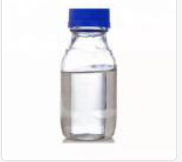Ethylene glycol

| Physical and chemical properties | Color and smell state: colorless and sweet viscous liquid | ||
| Toxicity: Harmful if swallowed | Flammability: combustible | ||
| Density: 1.1155 | Volatility: non-volatile | ||
| Corrosivity: None | Boiling point: 197.3℃ | ||
| Stability: good | Flash point: 110℃ | ||
| Acidity and alkalinity: Neutral | Hygroscopicity: absorb moisture when the concentration is high | ||
| Spontaneous ignition point: 418℃ | Stickiness: good | ||
| Melting point: -13.2°C | |||
| Solubility: miscible with water, miscible with ethanol, ether, etc. | |||
| Various numbers | CAS:107-21-1 | HS:2905310000 | EINECS: 203-473-3 |
| Uses | Ethylene glycol is used to make polyester, polyester resin, moisture absorbent, plasticizer, surfactant, synthetic fiber, cosmetics and explosives, as a solvent for dyes, inks, etc., to prepare engine antifreeze, and gas dehydration It can also be used as a wetting agent for cellophane, fiber, leather and adhesives in the manufacture of resins. It can produce synthetic resin PET, fiber-grade PET or polyester fiber, and flake-grade PET for making mineral water bottles. It can also produce alkyd resin, glyoxal, etc., and also be used as an antifreeze. In addition to being used as an antifreeze for automobiles, it is also used for the transportation of industrial refrigeration. It is generally called a refrigerant carrier. | ||
| Hazard category | General chemicals | ||
| Fire-fighting measures | Water mist, foam, carbon dioxide, dry powder, sandy soil. | ||
| Emergency treatment | Skin contact: Remove contaminated clothing, rinse thoroughly with soapy water and clean water; Eye contact: immediately lift the eyelids and rinse with running water; Ingestion: If you take it by mistake, drink plenty of warm water, induce vomiting, gastric lavage, and seek medical attention. | ||
| Packaging, storage, transportation | It can be packaged in baking varnish or galvanized iron drum, 200-220kg/drum, stainless steel tank; stored in a cool, ventilated warehouse. It should be sealed for long-term storage, and should be nitrogen sealed, moisture-proof, fire-proof and anti-freeze for long-term storage. According to general general cargo transportation. | ||
Next product: Trichloromethane (chloroform)

